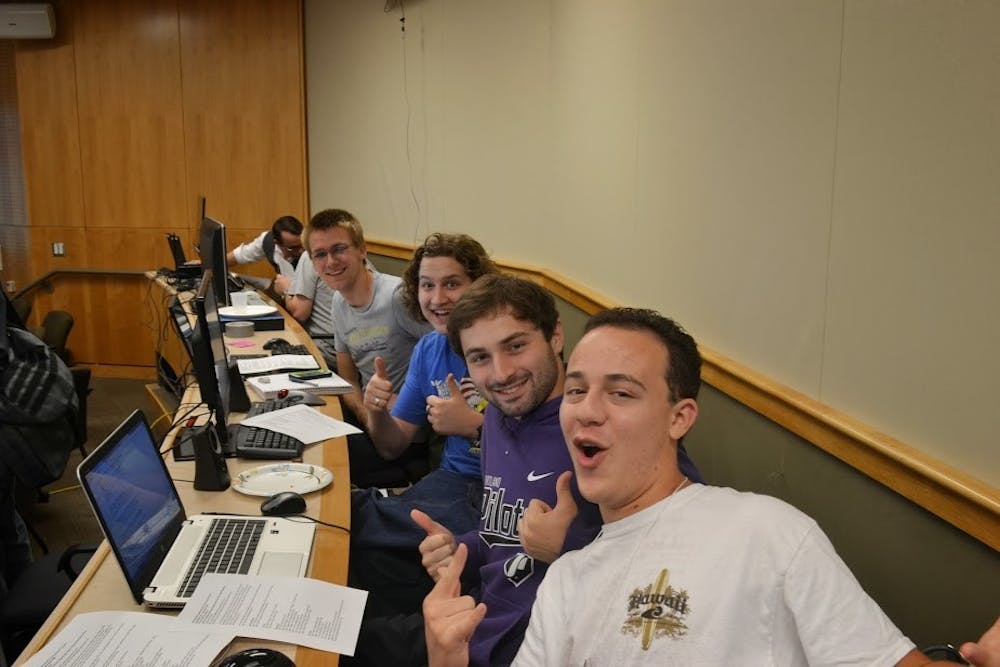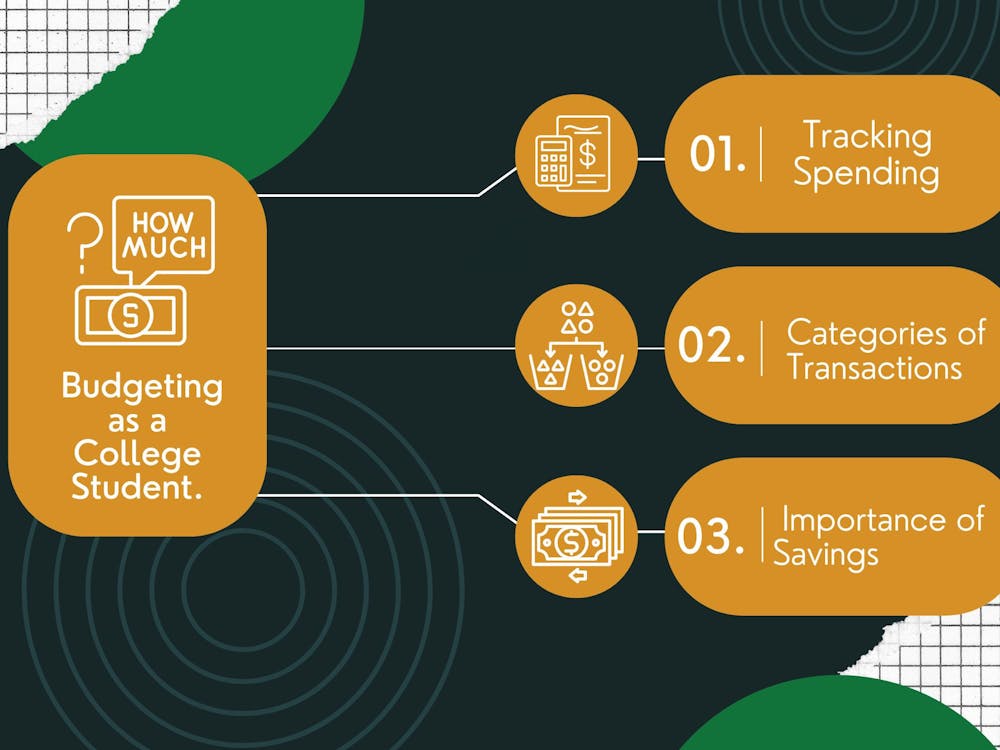By Rebekah Markillie |
When the power went out Sunday night across campus, Shiley 319 was a buzz of anger and confusion.
“We’re giving up! Everyone is giving up!” freshman Shamus Murray said.
This weekend the Portland Indie Speed Run and Pixel Art Game Education hosted their 48-hour Portland game jam in Shiley. The game jam is a race against the clock for teams or individuals to build a new video game in the allotted time. There is a universal theme that the jammers needed to incorporate into their game. The theme this year was agriculture.
Engineering professor Tanya Crenshaw heard about the event and decided to offer University of Portland as a host.
“(The game jam) benefits the students by letting them interact with people from the industry,” Crenshaw said.
Participants from UP and the community had the opportunity to register with the international Indie Speed Run and get their game evaluated by professional judges or just game jam and see what kind of game they could create.
All weekend long the jammers camped out in Shiley 319 and slept in St. Mary’s Student Lounge.
When the power went out, no one could upload their games and competitive jammers fled the building in the hopes of finding wifi to upload their project elsewhere.
Before the game jam started Friday night, Murray and his friends, freshmen Garrett Becker, Otto Steckler and Lucas Burns put together a team. They decided to try out game jamming to see what it was like and make connections with other people in the community.
“We’re here to get involved,” Murray said. “And have fun.”
Since none of them had done any kind of game creating before, Steckler said they were on an “up the wall, learning curve.” The team watched hours of tutorial videos and to add to their struggle’s they had to learn C# (pronounced “see sharp”), a programming language.
Becker had no experience with C# before so it was all new to him. Steckler had it a little easier since he had used C++ which he said is the “predecessor language to C#.”
Their game was based around cavemen. The player would wander around the game and interact with their surroundings and face different obstacles.
The team built their game through a program called Unity, which is a cross-platform game engine. Murray created the graphics while the other three built the game and created the audio.
After eight hours of work the team suffered a blow when, somehow, Murray deleted the terrain he created and had to restart from scratch.
Seniors Stan Peck and Devin Helmgren also wanted the learning experience from participating in the event. They too had never participated in an event like game jam.
In correlation with the agricultural theme, they created a game where the player controls a farm and their goal is to pay back the debt they own on their farm or they will be evicted.
As computer scientists, Peck and Helmgren had to figure out how to to create the game internally. They joined with two members from the community, Aubrey Hall and Skyler Jordan who did their graphics and writing. To keep the game simple, they used a lot of text to guide the player through the game.
After about nine to 10 hours of work, they had most of their coding done. They had the game finished, but there were only empty dialog boxes and blank buttons on the screen for the player to see.
“We had most of the stuff implemented but none of it was navigable (by people who didn’t already know the game),” Hemgren said. “Now, the things mean things.”
Sunday afternoon, both teams were feeling confident and were very proud of their work.
However, when the power went out Peck and Hemgren hadn’t synced the different copies of their code together and Murray, Becker, Steckler and Burns hadn’t finished putting all of their work together either so they were both stuck.
Neither teams were competing in the Indie Speed Runs so losing power didn’t affect their eligibility.
They had gone into the game jam not knowing how to create a game or really what to do. They wanted to challenge themselves, learn something and make connections with other game makers.
“(Game jam) is such a learning experience,” Hemgren said. “This is so cool, everyone should do this.”








